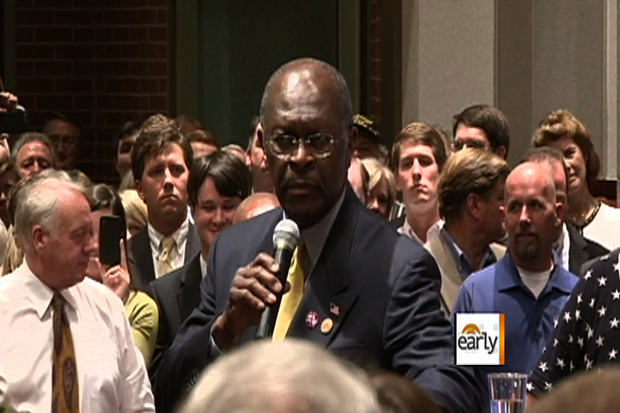Cain did not sign settlement, accuser's lawyer says
UPDATED 11:24 a.m. ET
The settlement agreement between the National Restaurant Association and a woman who accused Herman Cain of sexual harassment was reached in September 1999--and was not signed by Cain himself, according to Joel Bennett, a lawyer for the woman.
Bennett, who has a copy of the settlement agreement, said four people signed it: the woman, two lawyers representing the association and Bennett himself.
Bennett said the agreement was resolved relatively quickly, about two or three months after she complained.
That means it may have been reached after Cain left the association, and Bennett said it's conceivable that Cain didn't even know about it.
Bennett also told CBS News Friday morning he is hoping to issue a public statement reaffirming the accuser's claim within hours, if the restaurant group agrees to ease the confidentiality agreement that was part of the deal.
Bennett plans to issue the statement in his name, not in his client's name. It will not identify her, nor will it detail specific events of sexual harassment or the amount of settlement.
"It will insist the complaints were in good faith, and she's going to stand by her complaints," Bennett told CBS News. "It's her response to Herman Cain's statements that the complaints are baseless."
Cain left the association June 30, 1999, according to the NRA. Under that timeline, Cain would have been gone when the settlement was reached--and may well have been gone when she filed the complaint.
Cain has insisted he only knew of one complaint, and says he knew of no legal settlements--only what he calls a severance agreement with one woman. This timeline could well bolster his claims.
When Cain ran to represent Georgia in the Senate four years later, he told his advisers there was one complaint against him at the Restaurant Association, and that it was "baseless." One former staffer on the Senate campaign told CBS News that he and other advisers in the campaign knew about that complaint and believed it was meritless, but thought it could crop up in possible opposition research.

